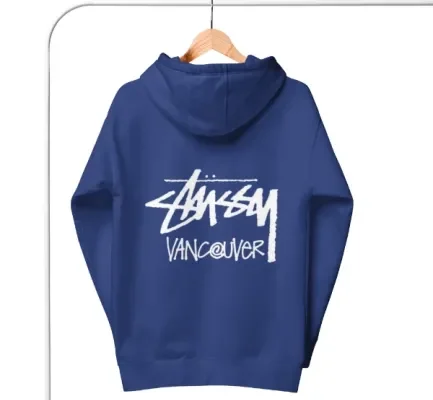For startups aiming to scale quickly, customer communication needs to be fast, reliable, and personal. With billions of users worldwide, WhatsApp has become a powerful channel for businesses to reach their audiences. But while the regular WhatsApp app works for casual messaging and the WhatsApp Business app suits small teams, growing companies often need something more robust.
That’s where the WhatsApp Business API comes in.
In this guide, we’ll explore what the API is, how it works, and why it’s a smart choice for startups looking to build strong customer relationships at scale.
What Is WhatsApp Business API?
The WhatsApp Business API is a messaging interface created for medium and large businesses that need to communicate with customers on WhatsApp programmatically and at scale. It’s designed to support automation, team-based communication, and integration with customer service platforms or CRMs.
Unlike the regular WhatsApp apps, the API doesn’t come with a graphical interface. Instead, it connects to your backend systems or third-party platforms through a Business Solution Provider (BSP). This allows businesses to send automated notifications, provide live support, and manage large volumes of conversations efficiently.
If your business needs to send delivery updates, handle support requests, or provide real-time assistance through WhatsApp, this is the solution built for you.
Key Features of WhatsApp API for Business
The WhatsApp API offers several advanced capabilities that make it ideal for startups and growing teams:
Message automation
Automate welcome messages, reminders, and order updates without requiring constant manual effort.
Chatbot support
Integrate AI or rule-based chatbots to handle common customer queries, reducing response time and freeing up your team for more complex tasks.
Template messages
Send pre-approved message templates to initiate conversations, especially for alerts, confirmations, and updates.
Rich media messaging
Share images, videos, documents, and location pins to improve clarity and customer experience.
Scalable multi-agent support
With API access, you can route messages to different agents or departments, ensuring smooth and structured communication.
These features are particularly useful when connected to platforms like Twilio, 360dialog, or respond.io, which act as middleware between your business and WhatsApp’s servers.
Who Should Use WhatsApp Business API?
While any business can technically apply for access, the WhatsApp Business API is best suited for companies that need to handle high volumes of customer interactions or integrate WhatsApp into their broader communication systems. Ideal use cases include:
• Startups preparing to scale customer service or marketing
• E-commerce stores sending shipping updates and promotions
• B2B SaaS companies offering onboarding and product support
• Enterprises managing distributed support teams
If you’ve outgrown the features of the WhatsApp Business app or need a more structured messaging system, the API provides the flexibility and power to grow with you.
Benefits of WhatsApp Business API for Startups
Startups often face the challenge of delivering high-quality service with limited resources. The WhatsApp Business API helps address that by enabling:
Scalable communication
Manage conversations across teams and channels using a single interface.
24/7 availability
Use chatbots and automation to stay responsive even outside business hours.
Higher engagement rates
Messages on WhatsApp tend to have significantly better open and response rates than emails or SMS.
Stronger brand presence
Create a verified business profile with your logo, address, and support hours—instilling trust from the first message.
How to Get Started with WhatsApp Business API
Getting access to the WhatsApp Business API isn’t as simple as downloading an app—it involves a few steps. Here’s a quick overview of the process:
1. Verify Your Business
You’ll need a verified Facebook Business Manager account, as WhatsApp is owned by Meta. This includes submitting your business details for review.
2. Choose a Business Solution Provider (BSP)
Most companies don’t connect directly to the API. Instead, they use a BSP like Twilio, 360dialog, or MessageBird. These providers help manage the integration, messaging, compliance, and more.
3. Set Up a Phone Number
The number must not be tied to any other WhatsApp account. Once verified, this becomes your official WhatsApp business contact.
4. Create Message Templates
Templates are required for sending outbound messages. These must be pre-approved by WhatsApp, especially if you’re sending notifications or alerts.
5. Connect to Your Systems
Using your BSP’s dashboard or custom development, connect the API to your CRM, chatbot, or customer support software.
For more technical guidance, you can visit Meta’s official WhatsApp Business API page.
WhatsApp Business API vs WhatsApp Business App
Here’s how the API compares to the regular WhatsApp Business app:
Feature WhatsApp Business App WhatsApp Business API
Suitable for Small businesses Medium to large businesses
User interface Mobile or desktop app No interface – API integration required
Automation Basic (quick replies, labels) Advanced (chatbots, workflows)
Multi-user support Limited Scalable across teams
Messaging volume Low High, automated
If your team needs multiple agents, advanced automation, or CRM integration, the API is the better long-term fit.
Challenges and Considerations
While powerful, the WhatsApp Business API comes with a few things to keep in mind:
• Setup can be technical
You’ll likely need help from developers or a BSP to integrate the API properly.
• Message templates require approval
Only approved formats can be used for outbound messages, which adds a layer of compliance.
• Costs can vary
Pricing depends on the provider and is typically based on 24-hour conversation sessions. Charges may apply for customer-initiated and business-initiated messages.
• No native app
Everything runs through external platforms or systems, which may add complexity for smaller teams.
Final Thoughts: Is WhatsApp Business API Right for You?
If your startup is growing quickly and communication with customers is becoming more demanding, the WhatsApp Business API offers a scalable, professional solution. It enables automation, better team coordination, and stronger customer relationships—without compromising on speed or personalization.
However, it’s not ideal for very small teams or businesses without technical resources. If you’re just getting started, the WhatsApp Business app might be sufficient until you’re ready to scale.
What customer communication tools have worked best for you? Share your experience in the comments.





Leave a Reply
You must be logged in to post a comment.